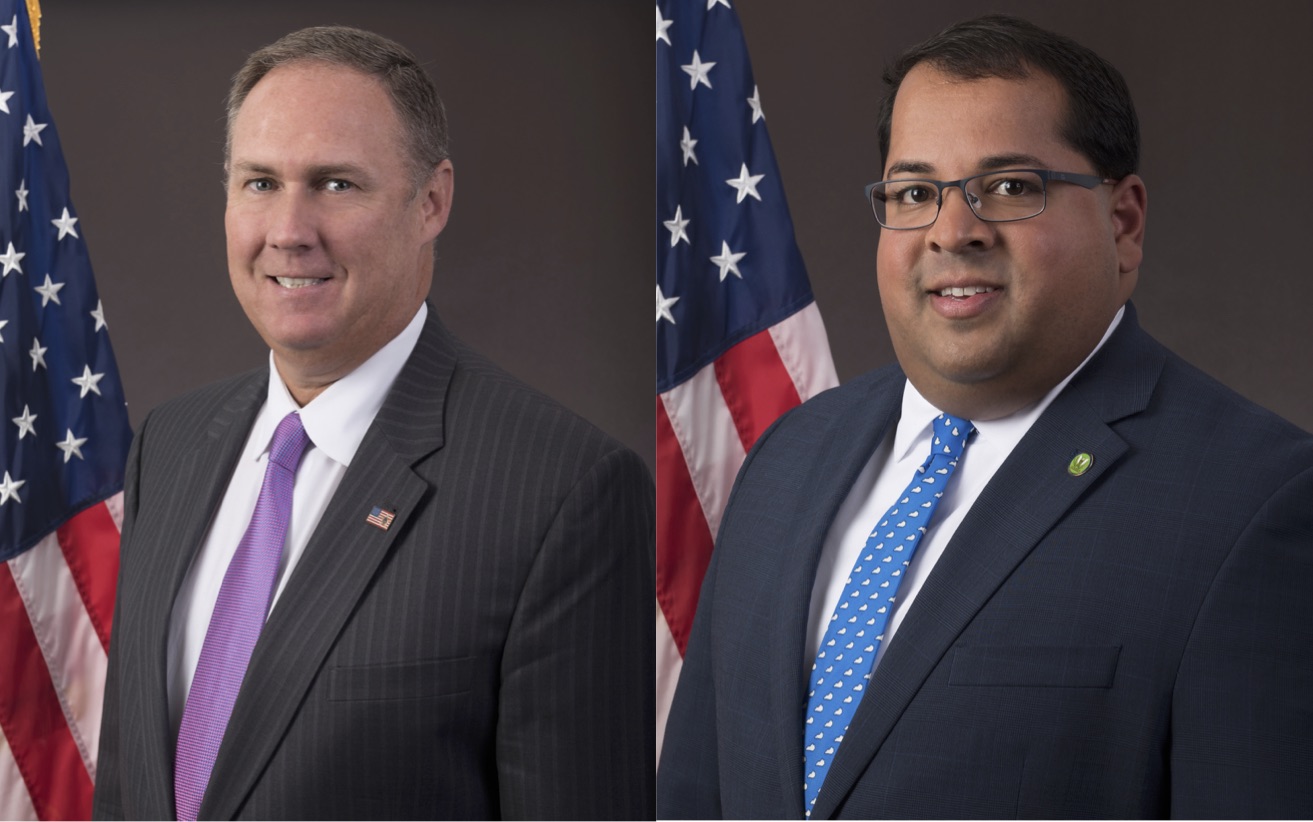In one of their first major decisions on the Federal Energy Regulatory Commission (FERC), President Trump’s newly appointed commissioners Neil Chatterjee and Rob Powelson approved the controversial NEXUS natural gas pipeline.
Yet DeSmog has found that in the months leading up to the appointment of the new commissioners, the companies behind the pipeline engaged in a lobbying blitz to support their nomination and confirmation.
First nominated to FERC by the Trump administration in early May, Chatterjee and Powelson were eventually confirmed by the U.S. Senate on August 3. Their appointment restored a quorum at FERC, which — having been reduced to a single commissioner in June this year — was unable to approve new energy projects.
Only three weeks after their appointment, the two joined sitting commissioner Cheryl LaFleur in approving the NEXUS pipeline, an interstate gas project that aims to deliver natural gas from Ohio to Michigan and Ontario, Canada. The companies behind the project are Canada’s Enbridge and Detroit-based DTE Energy. The pipeline was originally promoted by Spectra Energy, which Enbridge has since purchased.
The Lobbying Campaign
Congressional lobbying records reviewed by DeSmog show that by last summer, both companies had paid at least three different lobbying entities to advocate for the approval of Trump’s new FERC nominees.
Enbridge hired Prenda Group’s Brian Prenda and Brad Price, two longtime lobbyists for the company. DTE Energy employed three lobbyists from D.C. advocacy powerhouse Hogan Lovells: Michael Gilliland, Kyle Simpson, and James Wickett.
Hogan Lovells’ website touts Gilliland’s extensive experience and success lobbying Congress and other government bodies. “Mike’s comprehensive knowledge of the annual federal budget process, the grants awarded by federal agencies, and the Congressional budget and appropriations process gives him an edge in helping clients to achieve their legislative, regulatory, and policy goals,” the site proclaims. “Working closely with House and Senate committees and federal agency officials, he thoroughly understands the political process that governs federal funding.
But the lobbying efforts did not stop there. NEXUS Gas Transmission, the limited liability corporation established by the companies behind the project to promote and build the pipeline, employed the services of veteran lobbyist Brian Hicks from the Columbus, Ohio-based Hicks Partners.
From congressional lobbying records, showing Brian Hicks’ lobbying for FERC’s nominees on behalf of NEXUS Gas Transmission LLC.
A source familiar with Enbridge’s lobbying efforts in the Senate told DeSmog that they included letter submissions in support of the nominees and personal meetings with members of Congress. Before reaching the Senate floor, the nominations first had to be approved by the Committee on Energy and Natural Resources, chaired by Senator Lisa Murkowski (R-AK).
Asked whether these efforts in fact helped advance the approval of NEXUS, the source said: “It was no secret that without a quorum, no projects could get approved. The company had various projects pending authorization so for them the lobbying was seen as necessary to help ensure a quorum’s restored at FERC.”
Reached for comment, a spokesperson for the NEXUS pipeline referred DeSmog to its lobbyist, Brian Hicks.
In an email, Hicks acknowledged he contacted members of the Senate on the pipeline’s behalf. “As a registered lobbyist, I urged members of the Senate to confirm nominations to the Federal Energy Regulatory Commission to restore the agency’s quorum.”
DeSmog reached out to FERC for comment and asked whether the lobbying efforts played any role in the approval of the NEXUS pipeline. A FERC spokesperson responded simply with “no.”
Concerns Over Pipeline’s Impacts
As with numerous other fossil fuel pipeline projects in recent years, NEXUS had sparked fierce opposition from residents and activists affected by the project. As one central player in the fight, the Coalition to Reroute NEXUS (CORN) raised various objections to the 255-mile pipeline, which will cross 12 Ohio counties.
Among their concern, opponents cited safety issues, increased air pollution from a planned compressor station, eminent domain land seizures, worsening climate change, and increases in fracking activities.
After FERC approved the project in late August, some activists voiced deep disappointment.
“It’s rigged,” Paul Gierosky of York Township told a local newspaper. “There are new commissioners in there a couple weeks and they come to the conclusion that this pipeline, exporting natural gas to Canada, makes sense?”
Others vowed to continue their opposition to the project. “They got the permit,” said Kathie Jones of Sharon Township, “But it’s not over yet. We’re going to keep fighting.”
Main image: New FERC commissioners Rob Powelson and Neil Chatterjee. Credit: FERC.gov
Subscribe to our newsletter
Stay up to date with DeSmog news and alerts







